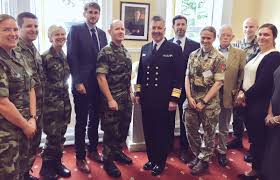Genocide Studies in Criminology Training Course
Genocide Studies in Criminology Training Course aims to equip learners with the tools to examine the root causes, historical patterns, international responses, and legal frameworks that define genocidal crimes.

Course Overview
Genocide Studies in Criminology Training Course
Introduction
The study of genocide within criminology is a powerful lens through which we can understand mass atrocities, state-sponsored violence, and crimes against humanity. Genocide Studies in Criminology Training Course aims to equip learners with the tools to examine the root causes, historical patterns, international responses, and legal frameworks that define genocidal crimes. With real-world case studies and critical theories, learners will explore how criminological concepts intersect with genocide prevention, justice, and accountability. The course combines investigative research, criminal profiling, international law, forensic analysis, and victimology.
This course is tailored for criminal justice professionals, legal scholars, sociologists, and human rights advocates who want to gain in-depth insights into the socio-political and criminological dynamics of genocide. By using trending methodologies such as transitional justice frameworks, AI-based conflict prediction, and survivor-centered research, participants will emerge with a solid foundation in analyzing and combating genocide using both academic and field-based strategies.
Course Objectives
- Analyze genocide through the lens of critical criminology and international criminal law.
- Examine the historical evolution of genocide and its criminological implications.
- Identify early warning signs and risk factors of genocide.
- Investigate the role of propaganda, hate speech, and digital radicalization in mass violence.
- Study the sociopolitical triggers and ethnic conflicts that escalate into genocide.
- Evaluate international responses using human rights law and transitional justice mechanisms.
- Explore forensic evidence and victim identification techniques in genocide investigations.
- Assess the role of state complicity and impunity in genocidal regimes.
- Interpret the use of criminal profiling and behavioral science in genocidal leaders.
- Develop strategies for post-conflict reconciliation and restorative justice.
- Understand the intersection of gender-based violence and genocide.
- Discuss genocide through comparative case studies from Africa, Asia, Europe, and the Americas.
- Learn the use of AI, big data, and geospatial tools for genocide detection and prevention.
Target Audiences
- Criminology Students & Scholars
- Human Rights Professionals
- International Law Practitioners
- Peace and Conflict Resolution Experts
- NGO Workers & Policy Makers
- Forensic Investigators
- Social Justice Educators
- Government and Security Analysts
Course Duration: 5 days
Course Modules
Module 1: Introduction to Genocide in Criminology
- Definition and legal classifications of genocide
- Theories of crime and mass atrocity
- Criminological typologies of genocidal behavior
- Role of international law in genocide studies
- Evolution of genocide from a criminological lens
- Case Study: The Armenian Genocide (1915-1917)
Module 2: Causes and Risk Factors of Genocide
- Sociopolitical triggers and economic instability
- Ideologies, nationalism, and dehumanization
- Hate propaganda and incitement to violence
- Identity-based conflict and ethnic divisions
- Structural violence and state failure
- Case Study: Rwandan Genocide (1994)
Module 3: Tools of Genocide and Methods of Execution
- Mass killings, starvation, and forced displacement
- Sexual violence as a tool of genocide
- Role of paramilitary and state forces
- Destruction of culture, language, and identity
- Suppression of evidence and documentation
- Case Study: Bosnian Genocide at Srebrenica (1995)
Module 4: Investigating and Prosecuting Genocide
- Forensic science in mass grave exhumation
- Collecting and preserving physical and digital evidence
- Criminal profiling of perpetrators
- Role of the International Criminal Court (ICC)
- Challenges in witness testimony and documentation
- Case Study: Nuremberg Trials and Holocaust Evidence
Module 5: Genocide Prevention and Early Warning Systems
- AI and big data for conflict prediction
- Early warning indicators and risk mapping
- Community resilience and grassroots intelligence
- Role of NGOs and international observers
- Conflict resolution and peacebuilding initiatives
- Case Study: United Nations Genocide Prevention Office
Module 6: Genocide and Gender-Based Violence
- Sexual slavery, forced sterilization, and rape as weapons
- Gendered dimensions of mass violence
- Impact on women, children, and LGBTQ+ groups
- Trauma-informed approaches to survivor support
- Gender justice in international courts
- Case Study: Yazidi Genocide by ISIS (2014–Present)
Module 7: Transitional Justice and Post-Genocide Recovery
- Truth commissions and memory initiatives
- Reparations and restitution for victims
- Psychological trauma and collective healing
- Legal and moral accountability
- Restorative vs. retributive justice debates
- Case Study: South Africa’s Truth and Reconciliation Commission
Module 8: Global Case Studies and Contemporary Challenges
- Comparative analysis of genocides across continents
- Role of modern technology in genocide escalation
- Media, misinformation, and complicity
- Genocide denial and historical revisionism
- Ongoing conflicts with genocidal risks
- Case Study: Rohingya Crisis in Myanmar
Training Methodology
- Interactive lectures with multimedia presentations
- Critical discussions and seminar-style debates
- Group assignments with scenario-based roleplay
- Virtual reality case walkthroughs and simulations
- Capstone project involving a comparative genocide analysis
- Real-time expert panels and Q&A sessions
Register as a group from 3 participants for a Discount
Send us an email: [email protected] or call +254724527104
Certification
Upon successful completion of this training, participants will be issued with a globally- recognized certificate.
Tailor-Made Course
We also offer tailor-made courses based on your needs.
Key Notes
a. The participant must be conversant with English.
b. Upon completion of training the participant will be issued with an Authorized Training Certificate
c. Course duration is flexible and the contents can be modified to fit any number of days.
d. The course fee includes facilitation training materials, 2 coffee breaks, buffet lunch and A Certificate upon successful completion of Training.
e. One-year post-training support Consultation and Coaching provided after the course.
f. Payment should be done at least a week before commence of the training, to DATASTAT CONSULTANCY LTD account, as indicated in the invoice so as to enable us prepare better for you.